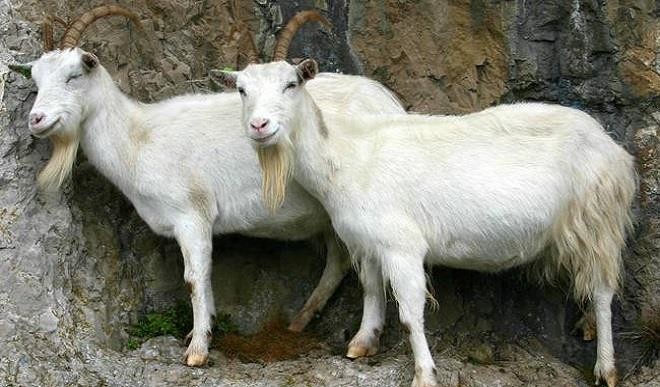Goat farmers in some parts of Cross River State have lamented inadequate male goats in their farms.
Our correspondent in the state reports that the problem is in addition to cold weather and the absence of veterinary doctors in most rural communities in the state.
- COVID-19: NMA to sanction Cross River health commissioner
- COVID-19: FG dispatches 17-member team to Cross River
Most of the farmers from the Betem Community Royal Cooperative Society in Bekwara LGA of the state said goat farmers usually went round the communities to beg for billy goats that would mate with their nanny goats.
Mrs. Agba Theresa, who spoke on behalf of the farmers, said, “Community members usually come to beg me for my male goats to mate with their female goats.”
Mr. James Bello, a renowned goat seller in Bwari, a suburb of Abuja, said goat farmers usually preferred to sell he-goats than female ones.
Mr. Bello said, “Maybe for fear of reproduction, some farmers prefer to sell their he-goats, which is understandable, but they must be careful in doing that because they need at least two male goats to 10 females if they are to keep their farms going.”
Meanwhile, the onset of the rainy season is not going down well with some livestock farmers in Cross River State.
Most of the farmers said they had already lost many young goats as the rains commenced.
They also lamented lack of veterinary doctors in their localities, which according to them, also increases the mortality rate of their goats.
Mrs. Agba Theresa, one of the farmers, who has been in the business for many years, said they needed urgent attention from the authorities and other agricultural bodies.
Mrs. Theresa said, “The major challenges we face are that we hardly get the services of veterinary doctors to treat our young goats and harsh weather. Sometimes we have to travel long distances from our interior communities to engage their services at high costs. Their absence makes diseases to ravage the animals.”
She said during the rainy season, the young goats were exposed to cold and diseases, and added that they often died due to the cold.
She disclosed that a Japanese agricultural organisation, Sasakawa Africa, gave her and other members of the Betem Cooperative some goats by way of empowerment.
Another farmer, Mr. Sunday John Ogwoni, from Yala LGA of the state, said he got five goats from Sasakawa and had reared 35 ever since and sold 10 at N30,000 each.
Mr. Ogwoni said, “My challenge is usually how to contain the outbreak of diseases among them. Lack of vet doctors is of much concern to us.”
Speaking on the livestock programme, which targets women mostly, Senior Coordinator of Crop Productivity Enhancement, which is one of the four components of Sasakawa, Mallam Idris Garko, said the objective was to help the women increase their livelihoods.

 Join Daily Trust WhatsApp Community For Quick Access To News and Happenings Around You.
Join Daily Trust WhatsApp Community For Quick Access To News and Happenings Around You.


